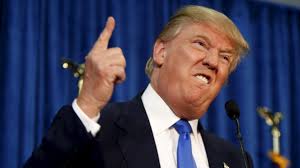The United States Supreme Court declined on Monday President Donald Trump’s appeal to block a New York grand jury from getting his personal and corporate tax returns.
The verdict represented the ousted President’s decisive defeat in his prolonged legal battle to keep his tax records out of the hands of investigators.
A news report by nbcnews.com, however, indicates that the ruling does not mean the returns will become public any time soon, and they might never be publicly released.
According to the online medium, under state law, materials turned over to a grand jury must be kept secret.
But Manhattan District Attorney, Cyrus Vance, can now require Trump’s accountants to turn over the records that the president has steadfastly refused to surrender to prosecutors or Congress.
“The work continues,” Vance said in response to the Supreme Court order.
Vance is seeking tax returns covering eight years for a grand jury investigation of hush money payments and other financial transactions.
The investigation began after it was disclosed that former Trump lawyer, Michael Cohen, paid Stormy Daniels $130,000 to keep quiet about her claim that she had an affair with Trump, an allegation the former president has denied.
Cohen also alleged to Congress that the Trump organization sometimes lied about its financial condition in order to evade taxes or obtain favorable loan terms.
In July, the Supreme Court rejected Trump’s contention that as a sitting president, he is immune from any part of the criminal justice system — including grand jury investigations. But the decision said he could go back to the lower courts and make the same arguments available to anyone trying to defeat a subpoena.
A month later, a federal judge in New York ruled against Trump’s renewed effort to get the subpoena tossed out, describing the legal attack as merely a repackaged version of his original immunity argument. The 2nd U.S. Circuit Court of Appeal affirmed the ruling.
The Trump legal team said the subpoena was vastly over-broad and issued in bad faith to harass him. If all Vance was looking at was the payments made by Cohen, they said, that wouldn’t explain why Vance simply copied a much broader subpoena issued by a congressional committee.
His lawyers told the Supreme Court that the first subpoena issued by a state for the records of a sitting president should have been properly tailored.
They said: “It’s near limitless reach-in time, scope, and geographic reach-has all the hallmarks of a fishing expedition.
“And the fact that the subpoena was issued to a third-party custodian while tensions were running high between the Trump Organization and the district attorney, and for dubious reasons of efficiency, only makes the allegation of bad faith that much more plausible.”
But in recent court filings, Vance has hinted that the scope of his work may be broader than just the hush money payments.
“The investigation concerns a variety of business transactions and is based on information derived from public sources, confidential informants, and the grand jury process” and could include falsifying business records, insurance fraud, and tax fraud, Vance told the appeals court.
Now that the Supreme Court has cleared the way for Vance to enforce the subpoena, the president has exhausted his legal options to block it.
The full tax return documents, or portions of them, would become public only if Vance brings criminal charges at some future date and seeks to introduce them as evidence






